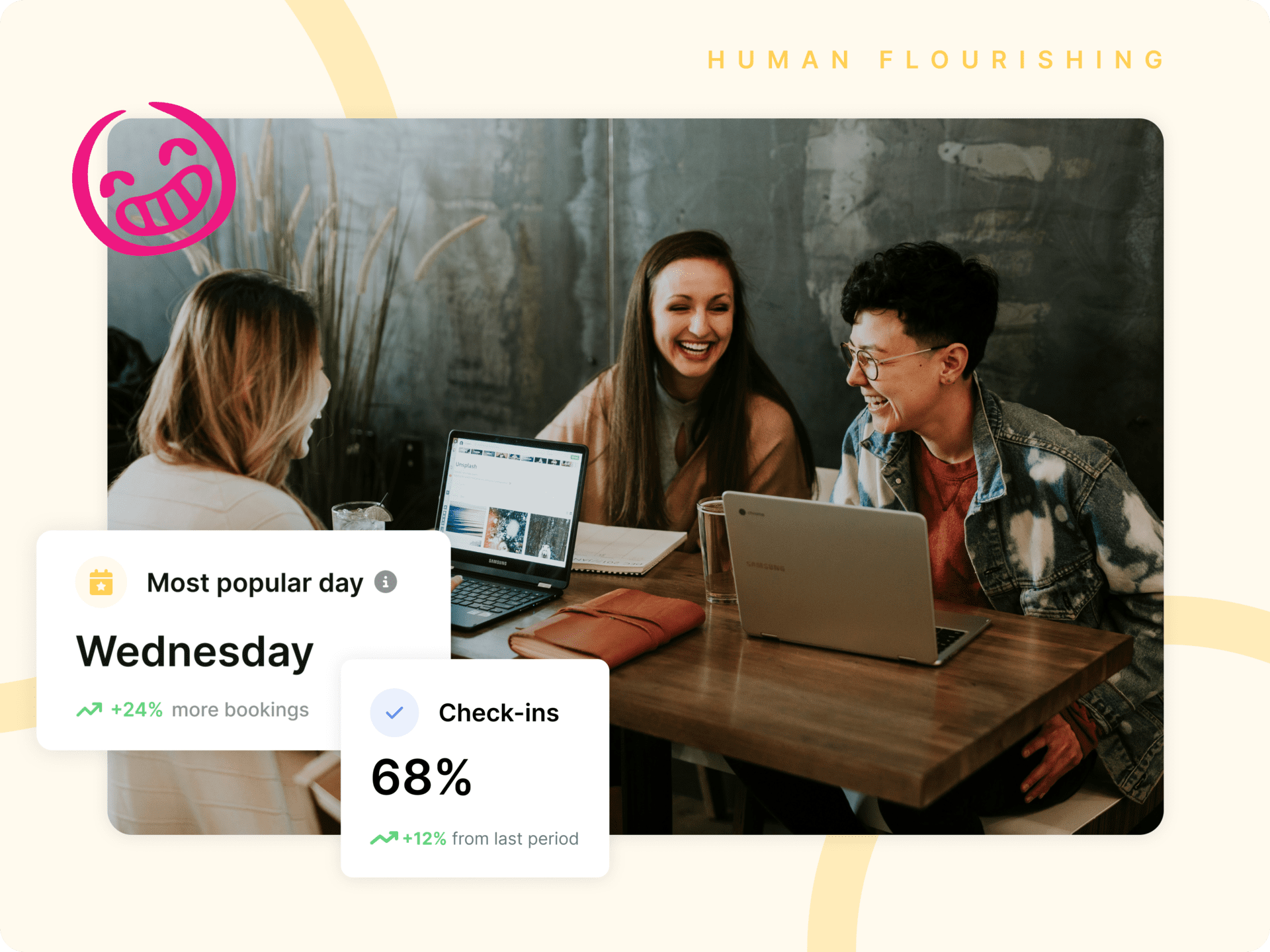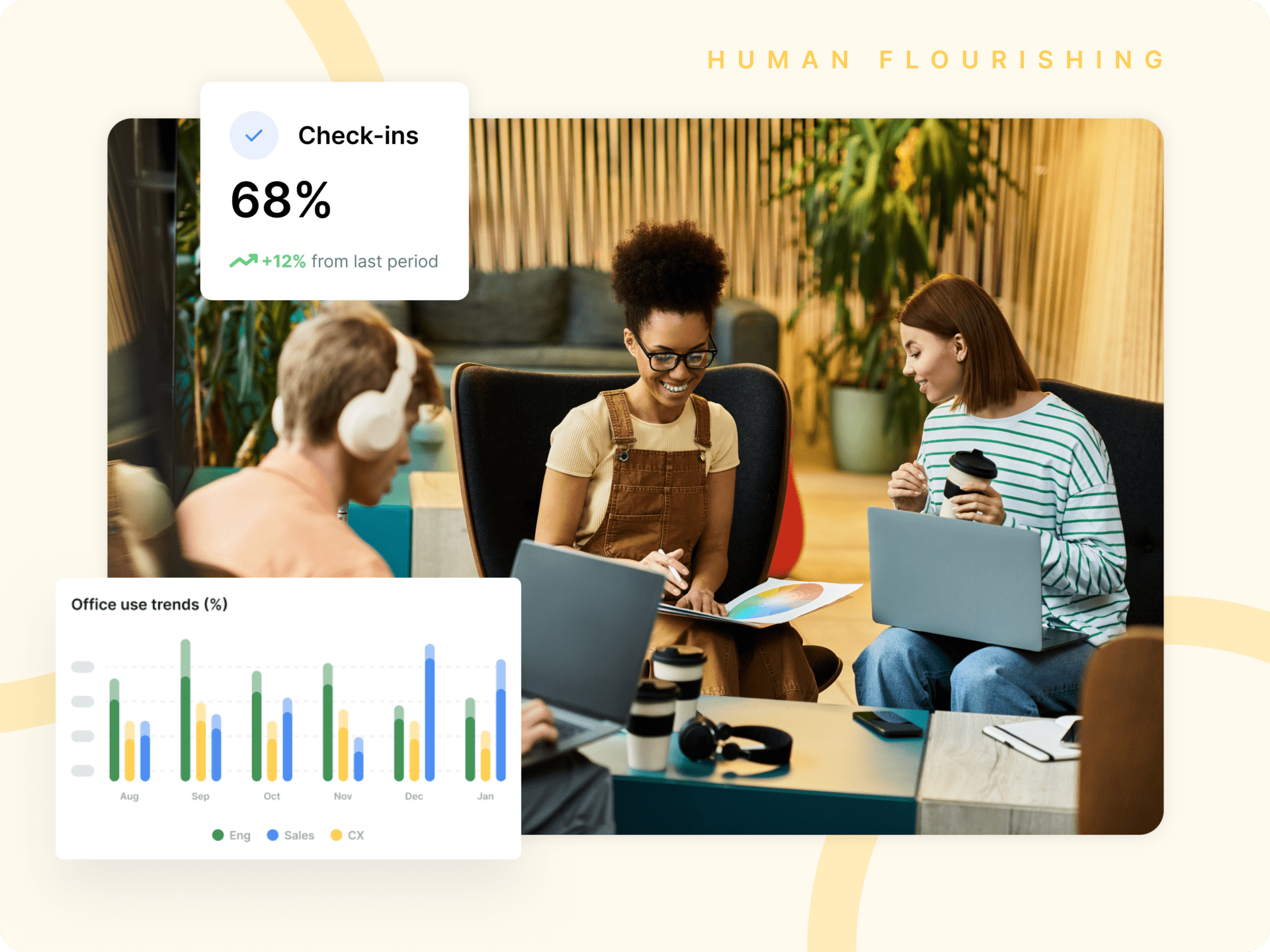HYBRID WORKING RESOURCESMake hybrid work for your teams
To many people, hybrid work as a concept is simple – employees split their time between remote and in-office work. But there are variations in the execution, each involving different degrees of flexibility and coordination. These useful resources will help you discover how to build, and empower flourishing teams whilst seamlessly managing your spaces.

The responsibility for implementing and managing hybrid work in an organization can fall to a variety of roles — from the CTO to the Chief of Staff. Yet there’s no right answer. Every organization is different, and every team has its specific circumstances and requirements for transitioning to a new way of working.
Creating a people-centric hybrid workplace is more than just offering perks and benefits in the new era of work. Businesses need to address the challenges that comes with new work patterns and how people now want to work – teams that get hybrid right will outperform those that don’t.







